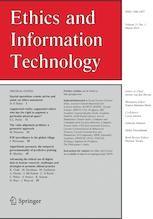Chelsea Haramia

Global Planning for Post-Detection
Dr. Haramia's research focuses on global planning for post-detection scenarios, i.e., scenarios that humans may face following a successful detection of extraterrestrial life or technology in outer space. Gauging public attitudes towards candidate global actions is fundamental for ethical questions of global consent. Informed consent, when it is possible to obtain, is arguably critical for morally appropriate representation and risk taking. Thus, consent regarding risk and representation is a crucial area of targeted analysis in current post-detection research. Dr. Haramia's work underscores the need to navigate speculative discourse and promote ethical inquiry in order to leverage existing resources for effective preparedness.
Central to her research agenda is the exploration of methodologies for assessing public attitudes towards global risks and securing global consent for post-detection proposals. She outlines both theoretical and concrete strategies aimed at advancing research into post-detection. She poses pivotal questions to guide her investigation, delving into the necessity of current and future tools, policies, and interdisciplinary research frameworks for navigating potential contact with extraterrestrial entities. Additionally, she explores the potential of foresight studies training and AI-driven programs in bolstering global preparedness and representation, addressing concerns of overrepresentation, misrepresentation, inclusion, and others in planetary future planning endeavors.
Dr. Haramia's work stems from a comprehensive overview of the historical context of post-detection research, tracing its origins from the early days of SETI science to the formulation of contemporary post-detection protocols.
Moreover, she underscores the crucially interdisciplinary nature of research in this field and emphasizes the value of collaborative initiatives. Her overarching goal is to develop defensible thresholds for informed consent and to explore avenues for globally-focused programs that will help to prepare humanity for a post-detection future.
Biography
Dr. Chelsea Haramia is an Associate Professor in the Department of Philosophy at Spring Hill College, USA and Senior Research Fellow at the University of Bonn, where she is conducting her research at the Center for Science and Thought as well as at the Academy for International Affairs NRW in Bonn. Her research interests arise at the intersection of science, technology, and values. She is the author of several articles and chapters on the ethics of space exploration, with a special focus on astrobiology ethics and the ethics of SETI. Her forthcoming book is titled Ethics and Extraterrestrial Communication: The Moral Responsibilities of Messengers (Routledge). She is also co-editor of the journal 1000-Word Philosophy and co-chair of the Human Factors working group of the UK SETI Research Network’s Post-Detection Hub.
Publications

